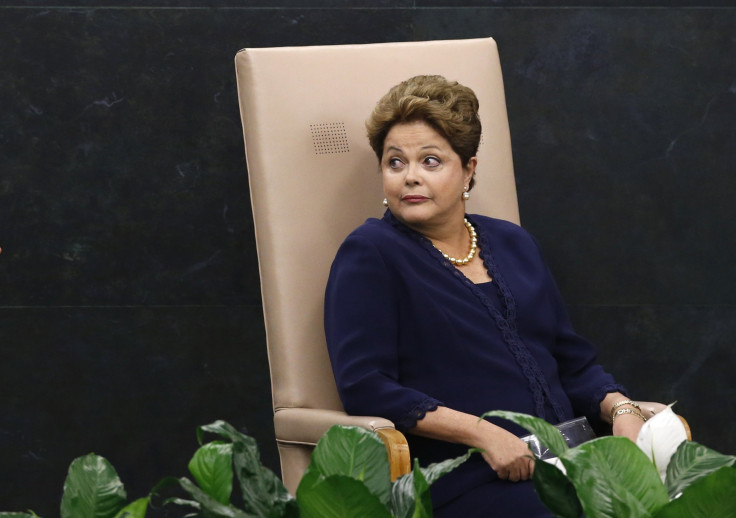
Since documents leaked by former National Security Agency contractor Edward Snowden revealed that the NSA had been carrying out extensive spying on Brazil - including the monitoring of Brazilian President Dilma Rousseff's phone calls and hacking computer networks of state oil firm Petrobras to access information about it - the United States has tried to smooth things over, sending Secretary of State John Kerry to stand by as Brazilian officials harangued him. At the UN General Assembly on Tuesday, Rousseff made it known to the US that she wouldn't be placated so easily, aiming a round rebuke of the NSA's spying directly at President Barack Obama before he took his turn to speak.
The Brazilian president, who was part of a guerilla group during the 1964-1985 military dictatorship and endured torture after she was captured and imprisoned, gestured at the history of authoritarianism in Latin America in her arguments, saying, "Like many other Latin Americans, I fought against authoritarianism and censorship and I cannot but defend, in an uncompromising fashion, the right to privacy of individuals and the sovereignty of my country." She said the NSA's programs were a "breach of international law" and an "affront of the principles that must guide the relations among [other countries], especially among friendly nations", adding, "The arguments that the illegal interception of information and data aims at protecting nations against terrorism cannot be sustained. Brazil, Mr. President, knows how to protect itself. We reject, fight and do not harbor terrorist groups."
Rousseff's argument also appeared in places to closely resemble those of WikiLeaks founder Julian Assange, who from the Ecuadorian embassy in London continues to issue warnings about government attempts to control, restrict and commercialize information on the Internet. "Society and the internet have now merged together," said Assange in a recent interview. "The internet is the nervous system of our communication ... if, sitting in between those communications, is a military organization, an intelligence organization...that is an undemocratic institution, a network that is, slowly but surely, lifting off the rest of society that it finds itself enmeshed in." Assange calls that the "militarization of cyberspace", and advocates for "the development of an open, international body politic" which fights for "the right for all of us to, at least, communicate with each other about what it happening to the world and the society that we live in".
The Brazilian president proposes that Brazil build its own Internet infrastructure to protect its citizens, whose personal data, she said in her speech, was "intercepted indiscriminately", while corporation information "of high economic and even strategic value" was especially targeted. She called for a new global legal system from the UN which would guarantee "freedom of expression, privacy of the individual and respect for human rights" and the political, religious and commercial neutrality of the Internet. "The time is ripe," she said, "to create the conditions to prevent cyberspace from being used as a weapon of war, through espionage, sabotage and attacks against systems and infrastructure of other countries."
RELATED: Glenn Greenwald Says NSA Read Emails Of Mexican President Enrique Pena Nieto; Brazilian President Dilma Rousseff Also Target
© 2025 Latin Times. All rights reserved. Do not reproduce without permission.




